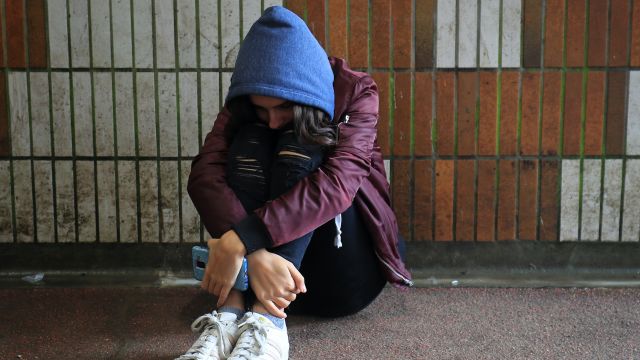Fewer than half of Year 11 pupils with a depression diagnosis achieved five A* to C grades, including English and maths, which is lower than the local average, the research from King’s College London found.
But these pupils in primary school were just as likely to meet the expected attainment threshold as their peers, researchers found.
The study, published in the British Journal of Psychiatry, suggests that targeted educational support for pupils struggling with depression may particularly benefit boys and those from poorer backgrounds.
It highlights the need to pay close attention to teenagers who are showing early signs of depression
The researchers, supported by the National Institute for Health Research (NIHR), carried out a historical, longitudinal cohort study linking data from child mental healthcare and school records.
They analysed a sample of 1,492 children and adolescents and compared their attainment against a local group of pupils in Year 2, Year 6 and Year 11.
Among the group who had a depression diagnosis, 83% met the expected attainment threshold of level 2 or above in Year 2, and 77% met the expected threshold of level 4 or above in Year 6 – which is similar to local levels.
However, only 45% met the expected threshold of five A* to C GCSE or equivalent grades (including English and maths) in Year 11, which was lower than peers in the local reference population (53%).
Report author Alice Wickersham, from the Department of Psychological Medicine at King’s College London, said: “What we’ve observed is that a group of children and adolescents who developed depression at secondary school had performed quite well when they were in primary school.
“It is only when they sat their GCSEs that they tended to show a drop in their school performance, which also happened to be around the time that many of them were diagnosed.”
She added: “While it’s important to emphasise that this won’t be the case for all teenagers with depression, it does mean that many may find themselves at a disadvantage for this pivotal educational milestone.
“It highlights the need to pay close attention to teenagers who are showing early signs of depression.
“For example, by offering them extra educational support in the lead-up to their GCSEs, and working with them to develop a plan for completing their compulsory education.”







